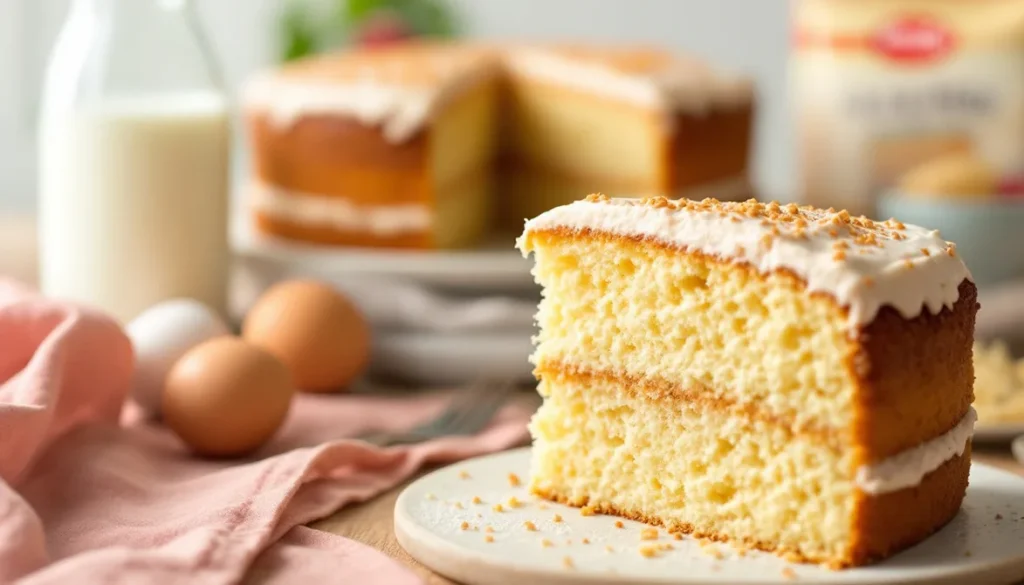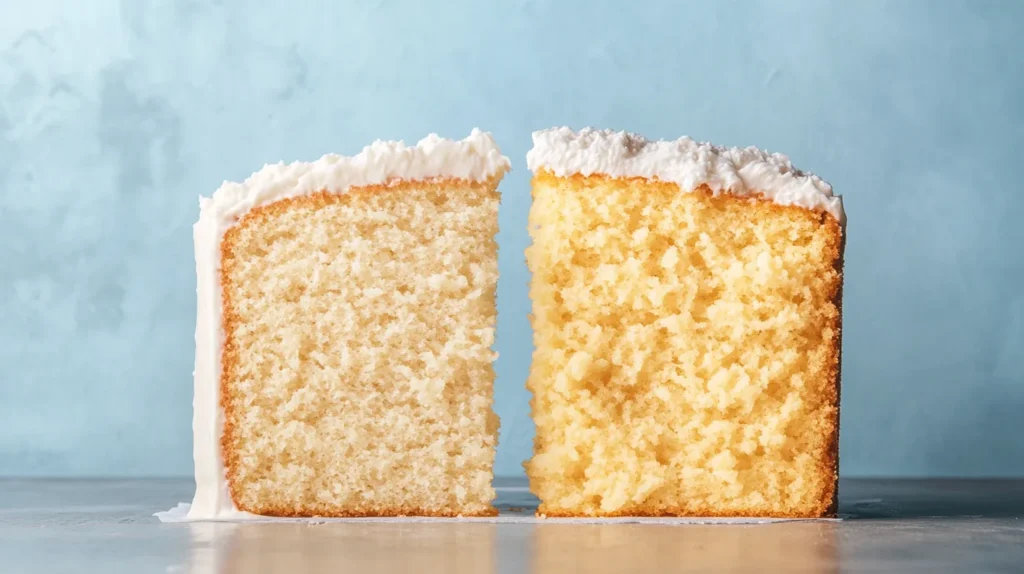Does Betty Crocker Cake Mix Need Milk?
When it bakes cake mixes, it’s no surprise that Betty Crocker mix is a common ingredient for a lot of bakers who are home. One problem that comes up can be: Does Betty Crocker cake mix require milk? In this article we’ll go over all you need to know about this issue and provide you an extensive look at the ways that milk (or the absence of it) affects the quality of your cake mix. From water as a substitute for milk, to alternative options and professional baking tips We’ve got you covered. Let’s begin from the beginning and then break it down!
Introduction to Betty Crocker Cake Mix
Betty Crocker cake mixes have been a favorite of bakers from all over the world for years. They are renowned for their easy-to-use and their reliable results, these cake mixes offer the fastest method of making cakes and without assembling numerous ingredients. All you have to add is some basic ingredients like eggs, water as well as oil. You’re on the way to a delicious homemade cake.
What is Betty Crocker Cake Mix?
Betty Crocker has a range of cake mix, including alternatives such as Super moist white Cake Mix, Yellow Cake Mix and even gluten-free Cake Mix. The main ingredients are sugar, flour as well as leavening agents and some stabilizers. The majority of mixes require egg yolks, olive oil or liquid. That’s where the issue of whether you require milk is an issue.

Why the Question: Does Betty Crocker Cake Mix Need Milk?
For many, the thought of including milk in their mix of cake is a given. However, is it really necessary? Milk definitely adds to the texture and flavor the cake by making it softer and more creamy. However, the addition of milk will depend on the kind of outcome you’re seeking. We’ll explore this further in the next sections. Read on to find out how milk could affect the result, and whether it’s actually necessary to make making the best Betty Crocker cake!
Can You Use Milk Instead of Water in Betty Crocker Cake Mix?
Many bakers are wondering, does Betty Crocker cake mix require milk or should you use water instead? Although water is the preferred liquid in many cake mixes, utilizing milk could alter the overall taste and appearance of the cake. So, let’s take an more in-depth review of what happens when you decide to substitute milk for water.
Milk or. Water The Fundamentals
The first thing to note is that Water is usually the preferred fluid in Betty Crocker mix cakes. It’s a neutral, non-edible liquid that does not alter the taste or texture in any way and allows the cake to come out delicate and light. But, if you opt to make use of dairy instead it adds a new layer of flavor. Milk is rich in fats and proteins which interact with other ingredients, resulting in an incredibly moist and tender cake with a softer texture.
But what happens if the actually employ dairy instead of drinking water? Simply put it enhances moisture and flavor. You’ll experience a deeper flavor while the dessert will be somewhat heavier and lavish than the light texture you’d get with only water.
Flavor Profile Changes
Why should you choose milk? If you’re looking for the appearance of a more creamy, more flavorful cake milk is a good alternative. The fats found in milk can give a more rich taste, and the sugars found in milk may make the cake slightly sweeter. This makes an incredibly rich cake and luxurious. In contrast water makes things lighter and less neutral. If you’re looking to make a basic cake with no extra flavor, then sticking with water is the best option.
The Impact of Using Milk in Betty Crocker Cake Mix
If you choose to include dairy in the Betty Crocker cake mix, you might be wondering how does milk impact the texture, moistness, and taste in the dessert? Let’s look at the scientific research behind the use of milk in cake mix.
Milk’s Effect on Cake Moisture
Milk is an fantastic option to ensure that your cake is and moist. As opposed to water, which does not contain any protein or fat it brings more benefits to the table. The fat content of entire milk (or even milk with low fat) can help keep cakes from becoming dry. This is particularly beneficial when cakes remain in the fridge for a few days or even. Cakes that are made using milk are more fresh longer. If you’d like your cake to retain the freshly baked water that stays fresh for a long time the longest, milk is an excellent option.
Milk also makes the texture of your cake more smooth and finer. Because of the protein found in milk interfacing along with flour the cake comes out more uniform and fluffier. This is one of the reasons why many bakers choose milk: it can aid in creating the soft and smooth batter and a sophisticated crumb.
Does Milk Affect the Stability of the Cake?
Although milk can add richness, it could also affect the quality of the cake. Cakes with milk can be a little more fragile than cakes made from just water, because the fat added could make them a bit more susceptible to collapse. It’s not a big issue however it’s something you should take note of particularly when stacking several layers or if you’re using a thick frosting.
The greater the amount of water that you include (whether through milk or any other liquids) the more dense the cake can be. In terms of taste, it’s difficult to match the richness that milk adds to the cake.
In the end, milk will certainly improve the texture and moistness in the Betty Crocker cake. While it can add an extra layer of richness but it also can make the cake more fragile. Therefore, you should weigh your options depending on the kind of cake you’re looking to bake.

FAQs: Common Questions About Betty Crocker Cake Mix and Milk
In the case of baking with Betty Crocker Cake Mix there are often questions concerning the necessity of adding milk. Let’s review of some of the most frequently-asked questions regarding the subject, particularly in regards to whether or not milk is really required.
Do You Need Milk for All Betty Crocker Cake Mixes?
The answer is simple: there is no need to say that every Betty Crocker mix cakes need milk. The majority of Betty Crocker cake mixes, such as those like the Super Moist Yellow Cake Mix or Devil’s Food Cake Mix usually require oil, water eggs, and oil. But some recipes, such as ones for cakes that weigh a pound as well as cakes that have a more rich texture could require milk to produce a more moist and tasty final product. It’s dependent on the particular recipe and the cake you’re attempting to bake.
What Happens If I Use Too Much Milk in the Mix?
If you add too much milk into mix your Betty Crocker cake mix, the cake’s texture might become too spongy or even spongy. The excess liquid could affect how the cake is constructed and make it less sturdy and more difficult to manage. To prevent this from happening you must measure cautiously and adhere to the suggested quantity. If you’re playing around with milk to enhance taste, you could try changing the proportions to get the desired texture and flavor.
Can I Use a Different Type of Milk for Betty Crocker Cake Mix?
Absolutely! If you’re using almond milk, soy milk or the oat milk alternative, these alternatives to dairy are great alternatives to the regular cow’s milk. The texture may differ slightly however the taste remains rich and delicious. Beware of any other flavorings or sweeteners that could be present in certain milks that are not dairy-based. For those who prefer neutral flavor, the unsweetened versions are the best choice.
Conclusion: Does Betty Crocker Cake Mix Need Milk?
Final Thoughts on Using Milk in Cake Mix
In the end, does Betty Crocker cake mix require milk? It’s dependent on what you’re seeking. If you’re looking to create a thicker and more delicious cake, milk could be a wonderful option. It adds texture and makes the cake more soft and moist, and also adds some sweetness. If you’re looking for a lighter, more simple cake, water can help.
In the end, it’s all about the outcome you’d like to see. It’s not a requirement in all Betty Crocker mix, yet it will certainly enhance the flavor and the overall quality. Therefore, whether it’s milk-based or not, your decision is yours, and the possibilities are infinite. Happy baking!
Tips for Using Milk in Betty Crocker Cake Mix
If you’re considering making use of dairy to make the preparation of your Betty Crocker cake mix There are a few tricks and tips that will assist you in achieving the most effective outcomes. If you’re an experienced baker or just beginning your journey learning the way that milk interacts with your cake mix will help improve your baking abilities. Let’s look at a few tips to get the most value out the ingredients you have.
Choose the Right Type of Milk
If you’re asking whether the Betty Crocker cake mix require milk It is important to think about the type of milk you’ll be using. Whole milk can be your most suitable choice if you’re seeking more moisture and richness. It can help create an more dense more creamy texture. If you’re seeking a lighter flavor it is possible to choose the 2% or even skim milk–although this may result in an unintentionally less indulgent texture.
If you prefer dairy-free alternatives, almond milk, oat milk as well as soymilk are excellent alternatives. These plant-based milks will not alter the flavor and can result in the most delightfully soft cake however you may have to alter the sweetness based on the type of milk you pick.
Don’t Overdo It!
While milk is a wonderful ingredient, you should be careful not to go overboard. Too much milk could cause your batter to become too thick, which could impact the structure of the cake. Make sure to stick to the quantity suggested in the recipe or alter it if you’re trying something new. If you find the batter to be to be too thin, adding some milk may aid, but remember that it’s an issue of finding that perfect equilibrium.
Add Milk Slowly
If you’re not sure how much milk you need to your mix, begin by pouring in the smallest amount and mixing. Gradually add more as you need. This will give you more control on the quality of your batter, and will ensure that you do not add excessive liquid at all at.
In short, using milk in Betty Crocker cake mix can certainly enhance the flavor and texture of your cake. Be sure to select the correct type of milk, be careful not to overdo it, and make sure to introduce it slowly for most optimal outcomes.

Alternative Liquids You Can Use in Betty Crocker Cake Mix
While the question of does Betty Crocker cake mixes require milk is a common topic, it’s equally important to be aware that there’s a myriad of different liquids you could utilize to create a cake mix that is more distinctive. Although milk is the most popular choice for a lot of people however, you don’t have to be restricted to one option. Let’s take a look at a few alternatives that could create different flavors and textures to your cake.
Water
Water is the most basic and most widely used liquid to make cake batters. It helps keep the cake moist and light and does not add any additional flavor or heft. If you’re baking cake that has to be neutral, such as a plain vanilla cake, or one which will have a heavy frosted water is a good and simple option. Be aware that water doesn’t give any extra flavor or moisture similar to milk.
Buttermilk
If you’re looking for a more rich texture and a distinctive flavor, buttermilk is an excellent choice. It gives moisture as well as the slight tang to make your cake’s flavor a bit more complex. Buttermilk is particularly effective in cakes such as pounds cakes as well as chocolate cakes in which a tangy flavor will enhance the overall flavor. Make sure you reduce the baking powder you use in the recipe as buttermilk may create a chemical reaction that can boost the cake’s rise.
Sour Cream or Yogurt
The yogurt and the sour cream could also be used as a substitute for the milk you use for the Betty Crocker cake batter. Both ingredients provide the moisture and richness of your cake more thick and delicate. Sour cream, particularly has a slight taste that’s great for chocolate-based cakes, or fruit-flavored cakes. Greek yogurt is also a good choice as it’s a healthy choice with a smooth texture.
Fruit Juices
If you want a light, fruity cake, you can play using fruit juices such as apple juice or orange juice. These liquids provide an unnatural sweetness as well as an element of the flavor depth that milk can’t offer. They are particularly good in cakes, such as lemon cake and Apple spice cakes in which they can add fruitsy flavors.
In conclusion, though milk is usually the most suitable alternative when it comes to cake mixes from Betty Crocker mix, it is possible to find a variety of options to assist you in modifying your cake. It doesn’t matter if you opt for buttermilk, water yogurt, fruit juice, or juice, each one offers its own distinctive characteristics to baking. Don’t be afraid of explore different choices!

